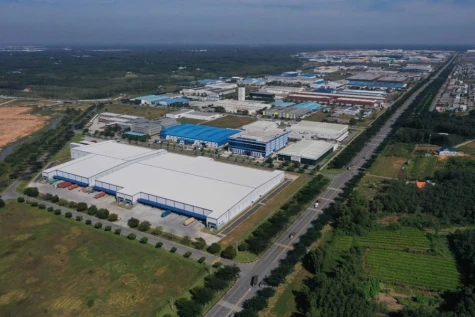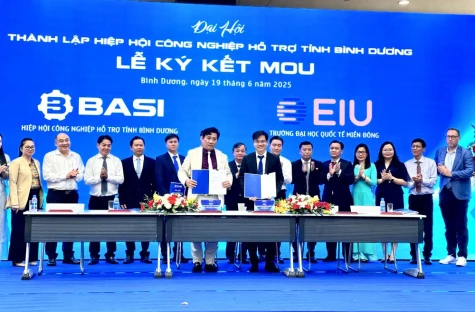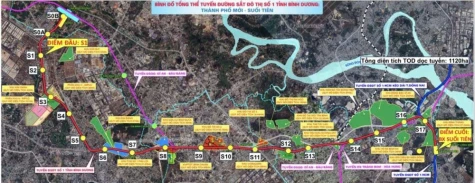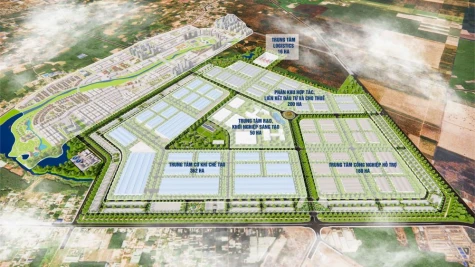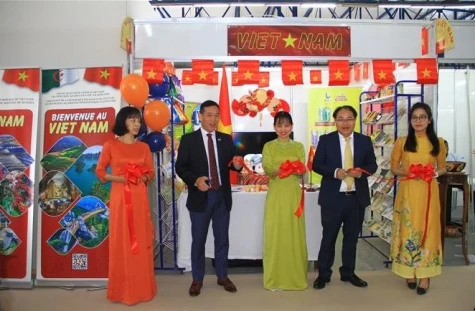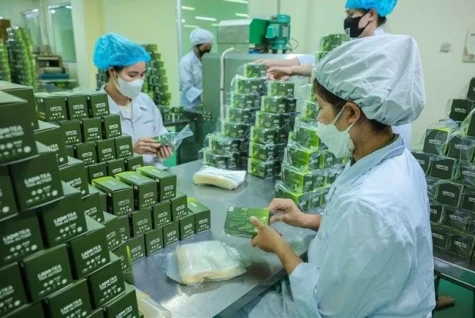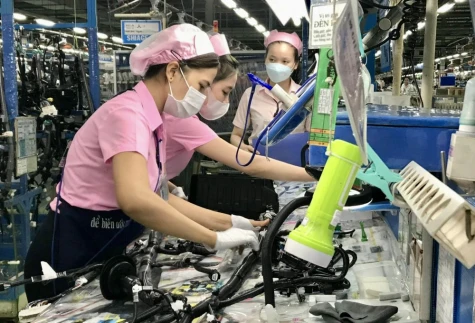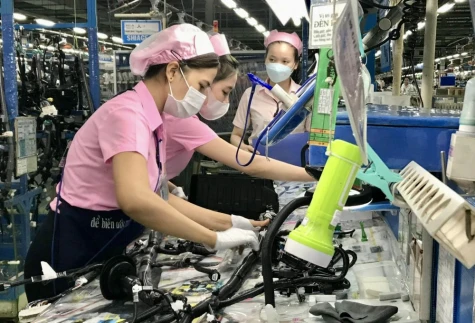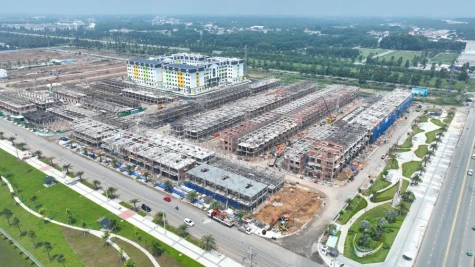Beginning in 2025, Binh Duong's agricultural sector will continue to prioritize the development of production in a modern direction, emphasizing high added value.

Crop transformation
Localities within the province are actively reviewing and refining plans for the restructuring of crops and plant varieties, as well as reorganizing large-scale commodity production areas. This effort aims to ensure competitive advantages by establishing a comprehensive chain that encompasses production, processing, and product consumption. Furthermore, localities are diligently supporting farms and farmers in the development and stringent management of growing area codes and packaging facility codes to facilitate exports and broaden consumption markets, with a particular emphasis on products that exhibit potential and advantages, such as green-skinned grapefruit, bananas, and durian.
In the realm of livestock management, alongside efforts to stabilize herds, localities, farms, and households within the province are prioritizing the prevention of diseases in livestock and poultry, particularly African swine fever, following reported outbreaks in some neighboring areas. Relevant authorities and sectors are actively collaborating to conduct inspections and monitor the disease situation, while providing support and guidance to farms and households to ensure strict adherence to biological protocols. They also advise against a significant increase in livestock numbers at this time to mitigate potential losses in the event of an outbreak.
Currently, livestock farming activities in the province are experiencing steady growth. The province is home to 150 chicken farms, with a total population exceeding 8.3 million; 265 pig farms, with a total population surpassing 714,000; 80 duck farms, with a total population of 863,000; and 1 dairy farm with a total population exceeding 490. Binh Duong continues to promote the establishment of integrated chains in livestock farming, emphasizing ecological sustainability, greenness, and organic practices. Efforts are being made to effectively manage waste generated during the livestock farming process, aiming for safe and efficient livestock production. Localities within the province are advancing the organization of livestock production in accordance with VietGAP standards, biosafety protocols, and traceability measures, while also encouraging the development of livestock farming models that prioritize organic and circular farming practices.
Binh Duong, in particular, stands out as one of the localities that has attained significant success in establishing animal disease-free zones to pursue export objectives.
To implement innovative solutions
To achieve a breakthrough in the agricultural sector and fully leverage the advantages of soil and climate, Binh Duong has been implementing comprehensive solutions to restructure and develop a modern, sustainable agriculture system. According to the leaders of the Department of Agriculture and Rural Development, the provincial agricultural sector has been effectively executing projects and plans aimed at a thorough and synchronized restructuring, with a focus on key priorities. The promotion of new scientific and technological applications serves as the primary catalyst for enhancing value and transforming the agricultural economic growth model. The sector is committed to improving the efficiency of production and business linkages in agriculture, with the goal of enhancing the quality of agricultural products and increasing market competitiveness.
| To date, the province boasts over 5,760 hectares dedicated to high-tech agriculture. The livestock sector has also undergone positive transformations, moving towards concentration and large-scale operations, with farm livestock representing more than 90% of the total livestock and poultry population in the province. |
The indicators of the province's agricultural sector demonstrate not only a positive trajectory of change but also an expansion in scale, enhancement in the quality of agricultural products, and increased income for rural residents. Specifically, the average per capita income in rural areas has risen annually, surpassing 90 million VND per person by 2024. Additionally, the total number of agricultural farms in the province ranks second in the Southeast region and fifth nationally; the rubber cultivation area and dry latex output also hold the second position; the number of pigs ranks eighth, while the poultry count ranks twelfth nationwide; the capacity for high-tech livestock farming is regarded as among the best in the country.
Mr. Pham Van Bong, Director of the Department of Agriculture and Rural Development, stated that Binh Duong, during its development process, has experienced a high urbanization rate and the fastest economic growth in the nation. This progress presents numerous advantages but also significant challenges for the province's agricultural sector, particularly concerning labor costs and land use. In this context, the agricultural sector has adopted various innovative solutions and made substantial advancements, with many areas now regarded as leaders in the country.
In the near future, the provincial agricultural sector will build upon its existing foundation while creatively implementing the resolution concerning agriculture, farmers, and rural areas, in alignment with the objectives of the Smart City Project - Binh Duong Innovation Zone. Concurrently, the sector will expedite the adoption of science and technology, foster innovation, and pursue digital transformation, developing model rural areas linked to smart villages, thereby elevating the agricultural and rural sectors to a new level.
Reported by Thoai Phuong - Translated by Vi Bao








